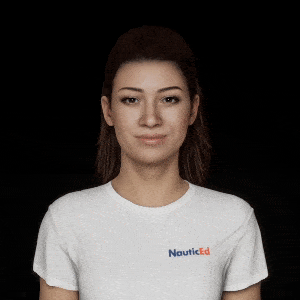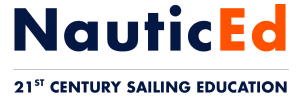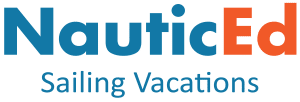Everything Evolves
including Sailing Education…
NauticEd Evolves the Sailing Education Industry
In the 21st century, we all feel like things are moving incredibly fast, and … we’re not wrong. Forty years ago my Dad would always mutter “Awwh #$%^&, they’re always bloody changing things”. The expletives might be a little louder these days. Everything is evolving. Everything! Yet some companies have chosen to stay behind – take for example Nokia and BlockBuster (who?). Where some companies lead the evolution – e.g. Virgin Galactic and Space X. Many times evolution in an industry gets stuck – it takes a leadership company to step up and cause a disruption far outside the comfort zone of the more incumbent companies. For example, if it were not for Tesla, our auto manufacturers would transition to electric in their own time – 2050? 2060?
At NauticEd, we have had over 15 years of experience leading the evolution of learning technology – in fact, we consider ourselves the lead instigator in the disruption of an incumbent old-style education program in our industry. e.g. now we are using virtual reality as a sailing training tool when others are still trying to barely understand what’s next after a paper book.
NauticEd history and why was the disruption needed?
In the 21st century, you would think that any education company would stay with the times. Yet there are still those who issue paper books, perform paper-proctored theory tests, sign paper logbooks, and issue shiny stickers as proof of attendance. This has been an embarrassing stain on the sailing industry alienating a younger more connected generation. Reason? Incumbency and lack of interest to invest in the customer when profits are flowing. A “why invest in change” attitude.
In 2007, NauticEd started with one online sailing education course – the Skipper Large Sailboat Course. It took a full week to sell the first course after launch. Now NauticEd has over 100,000 students and delivered over a quarter of a million sailing courses.
Now, NauticEd is unquestionably the world leader in delivering high-tech competence-based sailing education – both in theory knowledge and on-the-water training.
The disruption was needed because you can not create a competent sailor by having them read a book and then take them on the water for 2, 5, or even 7 days. There needed to be a measuring stick for competence. NauticEd’ s disruption to the sailing education, certification, and licensing industry was to create a fully integrated competence reporting digital sailing resume. This tool allows a student’s competence to be measured and reported by:
- Theory Knowledge
- Practical On-The-Water Skills Assessment
- Overall On-The-Water Sailing Experience
These above are all wrapped into a readable 1-2 page resume where anyone can see and determine if the student is more than likely to be competent. Certifications and licensing are then issued based on the competence determined NOT attendance as is issued by the incumbents now.
Yacht charter companies and port authorities worldwide accept the NauticEd SLC sailing license as proof of competence.
Measuring and delivering competence is NauticEd’s ace in the hole – and it is the NauticEd student who ultimately benefits. We believe that everyone who is engaging in sailing education wants to be competent. I mean, who wants to be a crappy sailor? Right?
All in all, everything evolves! And we are glad to now be leading the sailing education revolution and to help you become and stay a confident and competent sailor.
Learn more about the NauticEd Sailing Resume
Thanks for being part of the sailing evolution!
Grant Headifen
Global Director of Education
NauticEd International Sailing Education

 In 2023, AI has become a mainstream working tool across many industries. NauticEd introduces the world’s first AI Sailing Trainer – Alex AI.
In 2023, AI has become a mainstream working tool across many industries. NauticEd introduces the world’s first AI Sailing Trainer – Alex AI.

